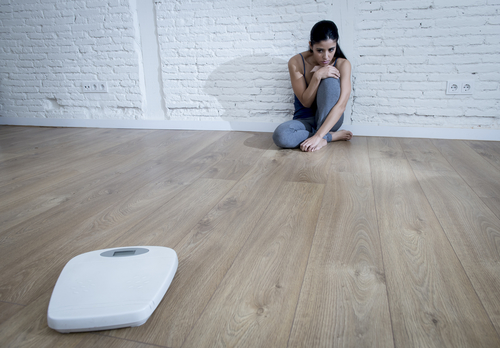Opioid addiction affects women in deeply personal ways, often tied to pain management, trauma, or mental health struggles. If you’re considering detox, it’s normal to feel uncertain about what lies ahead. This guide will walk you through what to expect, how detox affects women differently, and why medical support matters. Recovery is possible, and it begins with understanding your options and taking the first step with care.
Next Steps
If you’re struggling with addiction, you don’t have to face it alone. At Casa Capri, we offer expert, women-centered care in a supportive and nurturing space—designed by women, for women. Our team is here to help you heal with purpose and connection.
Call our admissions team for a free, confidential chat—we’ll even check your insurance and estimate any costs upfront.
Why Opioid Detox Affects Women Differently
Women often experience a more intense physical and emotional response to opioid withdrawal. Hormonal shifts, body composition, and co-occurring conditions like anxiety or depression can make symptoms feel more overwhelming. Women may also face different social pressures and caregiving responsibilities that affect their ability to seek treatment. A detox plan that’s built with these realities in mind can make all the difference in how supported and safe you feel during the process.
Understanding the Opioid Detox Process
Opioid detox is the process of clearing substances like heroin, oxycodone, or fentanyl from the body. Withdrawal symptoms can begin within hours of your last dose and typically peak within a few days. You may experience muscle aches, nausea, anxiety, insomnia, or intense cravings. The detox timeline and severity vary depending on the substance, dosage, and how long you’ve been using. Clinical support helps manage symptoms and lowers the risk of complications. All of this applies whether you’re going through heroin detox, fentanyl detox, or detox of some other opioid.
The Risks of Detoxing from Opioids Without Medical Support
Detoxing without medical supervision can be painful and dangerous. Quitting opioids suddenly can trigger severe symptoms, including opioid addiction withdrawal, dehydration, heart irregularities, and mental health crises. With substances like fentanyl, the risk of overdose during relapse is also high if detox isn’t managed properly. A medically supported environment provides monitoring, symptom relief, and emotional care to help you detox safely and with dignity.

How to Prepare for a Safe and Successful Detox
Preparing for detox means more than just stopping the drug. A thorough opioid detox protocol involves creating a plan, setting up support, and understanding what to expect. If possible, speak with a medical provider to help you taper safely or enter a supervised detox program. Let someone you trust know what you’re going through and try to clear time in your schedule so you can focus fully on healing. Mental preparation is just as important as physical readiness, especially if you’re managing responsibilities at home or work.
What to Look for in an Opioid Detox Facility for Women
Choosing the right detox program can shape your entire recovery experience. Look for a facility that offers gender-specific care, experienced medical staff, and trauma-informed treatment. Women often feel safer and more supported in environments where they’re surrounded by peers and staff who understand the unique emotional layers of addiction. A good program will also help you build a plan for what comes next, setting you up for long-term success beyond detox.
Life After Detox: What Recovery Looks Like for Women
Detox is only the beginning. Once opioids are out of your system, the real work of recovery begins. Many women continue into residential or outpatient programs to address the root causes of addiction. Therapy, group support, and lifestyle changes all play a role in helping you rebuild. You may also need to relearn how to manage stress, relationships, and emotional triggers without relying on substances. Recovery is a long-term process, but it’s one that becomes more manageable with the right tools and support.
Therapy, support groups, and lifestyle changes can help rebuild confidence and structure. Recovery is a process, and life after detox can be a time of deep growth and renewal with the right tools in place.
Next Steps
If you’re struggling with addiction, you don’t have to face it alone. At Casa Capri, we offer expert, women-centered care in a supportive and nurturing space—designed by women, for women. Our team is here to help you heal with purpose and connection.
Call our admissions team for a free, confidential chat—we’ll even check your insurance and estimate any costs upfront.
Why Women Trust Casa Capri Recovery for Opioid Detox
Casa Capri Recovery offers a safe and deeply supportive environment for women starting their detox journey. We offer opioid addiction treatment, including heroin addiction treatment and fentanyl addiction rehab. Our all-female clinical team understands the emotional and physical challenges of opioid withdrawal and creates a space where women can feel safe, respected, and seen.
With trauma-informed care, medical supervision, and personalized support, we help women begin recovery with confidence and care that speaks directly to their needs.
Frequently Asked Questions About Opioid Detox for Women
How long does opioid detox take?
Most detox programs last between five and 10 days, depending on the substance, dose, and individual health. Longer-term opioid use may require an extended taper or additional care.
Can I detox from opioids at home?
It’s not recommended. Opioid withdrawal can be intense and sometimes dangerous without medical supervision. A clinical setting ensures your safety and comfort throughout the process.
Does the U.S. have an opioid epidemic?
Yes, the U.S. has an opioid epidemic. America is the world leader in opioid prescriptions, and there are approximately 100 fatal overdoses each day in our country.
What are common opioid withdrawal symptoms in women?
Symptoms can include anxiety, nausea, muscle pain, chills, insomnia, and cravings. Women may also experience stronger emotional shifts during detox.
Is detox enough to recover from opioid addiction?
Detox is a starting point, not a full solution. Ongoing treatment, like therapy, outpatient programs, and relapse prevention, is essential for long-term recovery.
What happens after detox is complete?
After detox, many women transition into residential or outpatient care. Continued support helps build healthy habits, process trauma, and prevent relapse.



